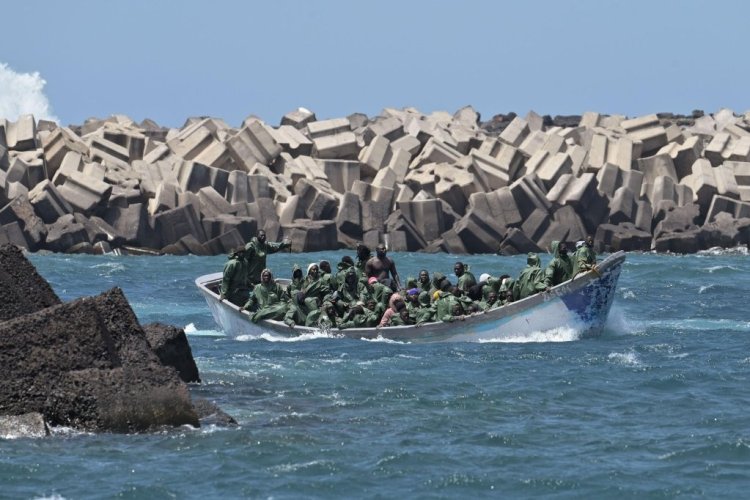Migrant arrivals to Canaries hit record high

The number of migrants reaching Spain's Canary Islands on precarious vessels from West Africa has hit an all-time annual record this year, with 41,425 arrivals between Jan. 1 and Nov. 30, according to the Spanish interior ministry. There has also been a surge in those who die en route to Spain, according to official figures.
In El Hierro, the most Southwestern point of the archipelago, 33 deceased migrants have been buried so far in 2024. In 2023, it was 11. In 2022, one.
Migrant arrivals to the Canary Islands rose 12% between January and October, according to Spain's interior ministry. But the estimated number of dead or disappeared was up 61% in the same period to 891, according to estimates by the International Organization for Migration, which says the route is the second deadliest in the world.
As countries across Europe succeed in cutting arrivals - irregular migrants arriving in Europe last year were a third of the 1 million seen during the crisis in 2015, and numbers fell further this year - the pathologist's predicament underscores the heightened risks being taken by those impelled to try or die to make a new life for themselves elsewhere, as well as the dark months endured by their families back home while seeking news about their loved ones.
To potentially dodge coastguard patrols, boats are coming from further away in West Africa.
In September, only 27 migrants were found alive after a boat carrying 84 people capsized, according to Spain's coast guard. It was the Canaries' worst shipwreck on record, according to the local authorities.
Following the incident, nine victims' bodies were recovered, all buried in El Hierro. Seven of them were buried anonymously.
The Atlantic route is particularly dangerous as the ocean's rough weather can easily capsize the fragile rafts, pirogues and dinghies used by most migrants.
Between January and October, the Canaries registered the fastest increase of irregular migrants by sea in the EU, even as numbers in the bloc slumped overall, Frontex data showed.















